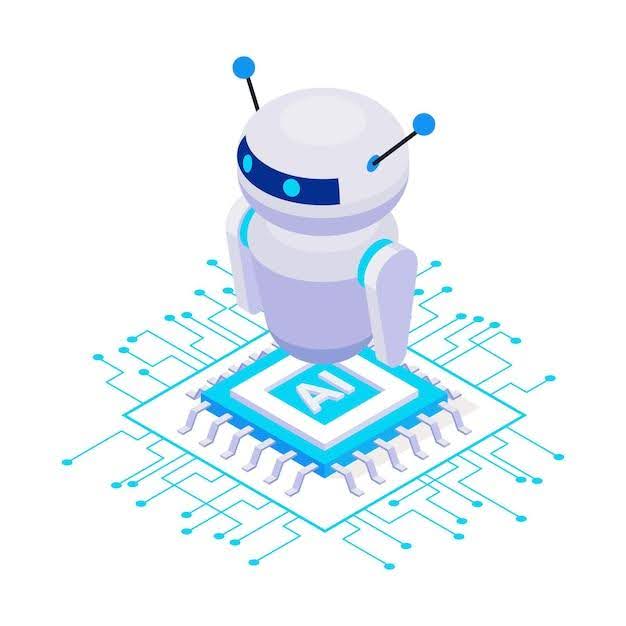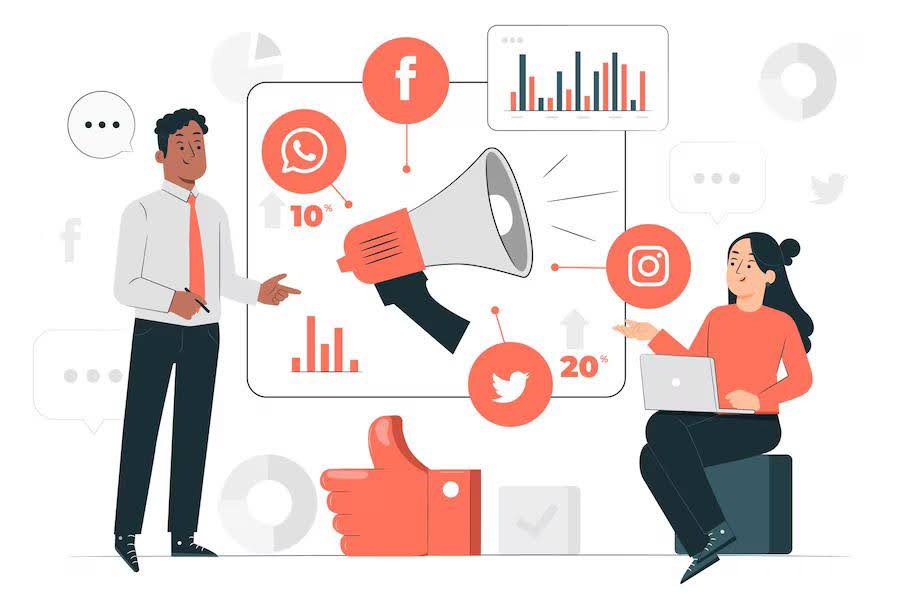Published on: 06 Aug 2024
Reading time: 6 minutes
In today's rapidly evolving digital environment, the integration of AI in ads has sparked a revolutionary transformation in marketing. Advanced AI technology has fundamentally altered how brands promote their products, introducing new methods for targeting and engaging with audiences. There are several applications of AI in ads, including creating engaging creatives and copies, optimizing budgets, and predicting campaign performance. When used together, AI and advertising can help advertisers ensure success for their digital campaigns, with improved ad performance and enhanced user experiences being only some of the benefits offered by AI for advertising efforts.
What Is AI in Advertising?
AI in ads involves integrating artificial intelligence technologies into advertising efforts to improve various aspects of the advertising campaign creation and management processes. AI can help in contextual targeting, ad creation, campaign optimization, and performance analysis. At its core, the capabilities offered by AI for advertising aim to improve a brand’s marketing performance, efficiency, and cost savings.
Artificial intelligence enables technologies to learn and improve over time. Unlike traditional technology, AI can identify patterns in data and use these patterns to predict varied conditions and situations. The more data an AI system receives, the more proficient it becomes.
Why Is AI Needed in Advertising?
The integration of AI and advertising is revolutionizing the digital landscapes, particularly in the realm of programmatic advertising which can help brands reach customers across a vast array of digital platforms. Additionally, you can test hundreds or even thousands of variations of different ads to determine which ones resonate best with your target audience. The applications and benefits are numerous, as you can create ads with AI and serve them through programmatic placements. Other top uses of AI in ads include:
Advertising Budget Allocation
AI algorithms can analyze vast amounts of data, including consumer behavior, market trends, and historical campaign performances, to optimize advertising budget allocation across channels and platforms. This ensures that advertising dollars are spent efficiently, maximizing the return on investment (ROI). AI can identify new conversion opportunities and untapped audiences to reallocate resources, ensuring that campaigns remain agile and responsive to changing market conditions.
Audience Profiling and Targeting
Using advertising and AI, which excels at processing and analyzing vast amounts of data to build rich audience profiles, can help advertisers gain deep insights into their consumers. By helping understand consumer preferences, behaviors, and demographics, AI allows advertisers to reach their desired audiences with laser-sharp precision, increasing the effectiveness of their campaigns.
Campaign Goal Optimization
AI can assist in setting and achieving campaign goals by analyzing historical data, market trends, and competitor strategies. It can provide insights into the optimal mix of channels, messaging, and tactics to maximize desired outcomes, such as increased brand awareness, lead generation, or sales.
Competitive Intelligence
AI-powered tools can gather and analyze data on competitor advertising strategies and ad spends, providing valuable insights into their tactics and market positioning. This information can help advertisers make informed decisions and gain a competitive edge.
Ad Creative Development
To generate and optimize ad copy, visuals, and creative ads, AI can be used to suggest effective ad formats, messaging, and visual elements for different digital platforms and audiences.
Dynamic Creative Optimization (DCO)
Using dynamic creative solutions allows advertisers to personalize the creative, content, brand message, and various other elements of an ad unit for different audience segments in real-time as the ad is being delivered. In DCO, AI can adjust different ad elements in real-time based on who the ad is being served to, their location, browsing behavior, and demographic data, delivering highly relevant and personalized ad experiences to audiences.
Ad Performance Prediction
AI can analyze historical data and campaign metrics to predict the performance of future advertising campaigns. This predictive capability enables advertisers to make data-driven decisions, optimize ad strategies, and allocate resources more effectively.
Top Use Cases AI in Advertising
Here are some of the key applications and use cases of AI for advertising:
Buying and Placing Ads in Programmatic
Programmatic technology is used to target and deliver ads automatically in real-time across the internet. AI is crucial to the infrastructure behind several digital advertising solutions, even if it's not always visible. Modern programmatic platforms frequently use AI to handle real-time ad buying, selling, and placement.
In fact, all digital advertising exchanges and platforms use artificial intelligence to manage the real-time buying and selling of ads.
Optimizing Ad Budget and Performance
Maximizing budget efficiency and enhancing returns on ad spend (ROAS) are paramount objectives for marketers. While automated bidding tools like Google Smart Bidding are commonly associated with AI-driven budget optimization, they represent just one facet of the solution. AI tools can be used to automatically adjust and modify advertising spend.
Creating and Managing Ads
AI systems can save time on ad campaign management, significantly boosting performance and streamlining the process. For example, one can create ads copies with AI and multiple variations from existing content, much faster than manual efforts. With AI, video ads (not involving real actors) can also be created conveniently.
Automatic Generation of Ad Variations
AI allows you to automatically generate multiple ad variations. You can provide a single ad to an AI tool, which will then create numerous variations of the same. These variations can include different ad sizes and formats that match the specifications of various digital platforms or feature different designs and creative elements based on your diverse campaign goals.
Image and Video Generation
You can easily generate images and video ads using AI. Popular tools for image and video creation are impressing audiences online, delivering stunningly creative, artistic, and photo-realistic results with off-the-shelf technology. In just a year or two, these tools have made significant advancements. Soon, creating the best visuals that captivate your audiences won’t require a large investment of time, money, or effort.
Personalizing Ads Based On Customer Motivations
AI enables serving highly personalized advertisements based on consumer motivations. Today, AI can aid in content creation and identify the language or elements that resonate with different audiences and automatically adjust the ad content accordingly. For example, one user might respond better to a message that highlights discounts and value, while another might prefer a message that evokes excitement and joy. AI can distinguish such preferences based on user data and tailor advertising messages to appeal to different audience segments.
Ad Effectiveness Prediction
AI's predictive capabilities offer significant advantages in ads. With AI trained on vast amounts of proprietary ad data, we can predict the effectiveness of ads before they are launched. AI analyzes signals from millions of successful campaigns and applies these insights to new ones to ensure maximized success.
Running Ads at Scale
You've likely conducted a simple A/B test at some point. AI enables much more robust testing of ad creative and messaging variations at scale. Today's AI tools allow us to quickly test hundreds or thousands of ad copies and creative ad variations automatically. AI excels at handling data-intensive tasks at scale, making it an ideal tool for advertisers who may struggle with this task. AI can handle large-scale testing, allowing advertisers to focus on using the generated insights to create better ads and campaigns that resonate with a broader audience.
AI solutions can help advertisers increase revenue and reduce ad costs. Many brands are already embracing AI in marketing across various advertising campaigns, like programmatic ads, rich media ads, and social media display ads, to gain a competitive advantage.
Schedule a demo




